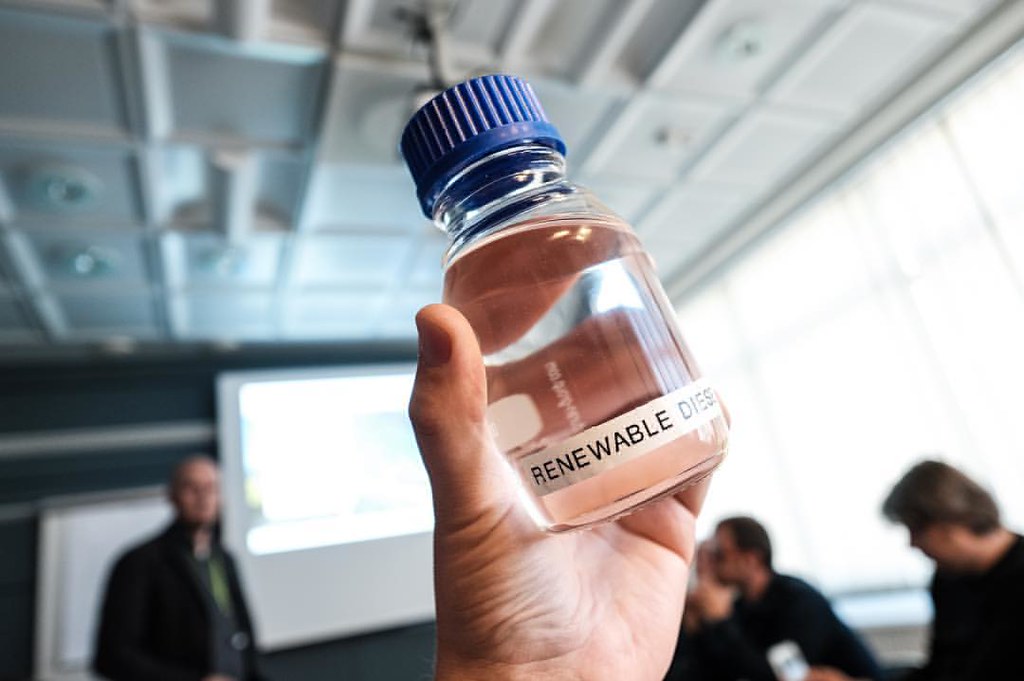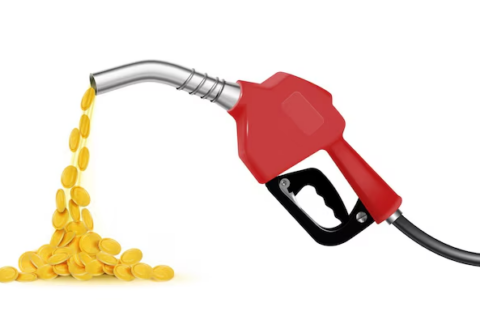Understanding Renewable Diesel: A Comprehensive Guide
As the world grapples with the twin crises of climate change and energy security, renewable energy sources are gaining unprecedented attention. Among these, renewable diesel has emerged as a promising alternative to traditional fossil fuels. This blog aims to delve into what renewable diesel is, who uses it, why it is gaining popularity, and how it compares to biodiesel.
What is Renewable Diesel?
Renewable diesel, also known as hydrotreated vegetable oil (HVO), is a biofuel derived from renewable resources such as vegetable oils, animal fats, and other biomass. Unlike biodiesel, which is produced through a process called transesterification, renewable diesel is created through a hydrogenation process. This hydrogenation process involves treating the feedstock with hydrogen at high temperatures and pressures, resulting in a fuel that is chemically identical to petroleum diesel.

Production Process
The production of renewable diesel involves several key steps:
Feedstock Collection: Renewable diesel can be made from various feedstocks, including vegetable oils (like soybean or canola oil), animal fats, used cooking oils, and even algae. The choice of feedstock often depends on availability, cost, and sustainability considerations.
Hydrogenation: The collected feedstock undergoes hydrogenation, where it is treated with hydrogen under high temperatures and pressures. This process breaks down the complex molecules in the feedstock, resulting in a clear, colorless liquid that resembles conventional diesel.
Purification: The final step involves purifying the hydrogenated oil to remove impurities and contaminants, ensuring that the renewable diesel meets strict fuel quality standards.
Who Uses Renewable Diesel?
Renewable diesel is used by a diverse range of sectors and industries, each with unique needs and motivations:
Transportation: The transportation sector is one of the largest consumers of renewable diesel. Fleets of trucks, buses, and other commercial vehicles use renewable diesel to reduce their carbon footprint and comply with environmental regulations. Cities and municipalities are increasingly adopting renewable diesel for their public transportation systems to enhance air quality and public health.
Aviation: The aviation industry is exploring renewable diesel as a sustainable aviation fuel (SAF). Airlines and airports are testing and implementing renewable diesel blends to reduce greenhouse gas emissions and dependence on fossil fuels.
Marine: The shipping industry, responsible for a significant portion of global emissions, is also turning to renewable diesel. Shipping companies use renewable diesel to meet international maritime emission regulations and reduce their environmental impact.
Agriculture: Farmers and agricultural enterprises utilize renewable diesel to power tractors, combines, and other machinery. The agricultural sector’s adoption of renewable diesel helps create a closed-loop system, where crops grown for fuel production are then used to power the machinery that cultivates those crops.
Why Use Renewable Diesel?
The increasing use of renewable diesel is driven by several compelling factors:
Environmental Benefits: Renewable diesel significantly reduces greenhouse gas emissions compared to conventional diesel. Studies have shown that it can lower carbon dioxide emissions by up to 80% over its lifecycle. Additionally, renewable diesel produces fewer particulates, nitrogen oxides, and sulfur oxides, leading to improved air quality.
Performance and Compatibility: Renewable diesel offers superior performance characteristics. It has a higher cetane number, which means better combustion efficiency, and it performs well in cold weather conditions. Moreover, renewable diesel is fully compatible with existing diesel engines and infrastructure, requiring no modifications to vehicles or fueling stations.
Regulatory Compliance: Governments worldwide are enacting stringent regulations to curb emissions and promote renewable energy. Renewable diesel helps companies and municipalities meet these regulatory requirements and avoid penalties.
Energy Security: By diversifying energy sources, renewable diesel enhances energy security. It reduces dependence on imported oil and supports domestic agriculture and biofuel industries.
Comparing Renewable Diesel and Biodiesel
While both renewable diesel and biodiesel are derived from renewable resources, they differ significantly in their production processes, chemical properties, and performance.
Production Process:
Biodiesel: Produced through transesterification, where feedstock oils are reacted with an alcohol (usually methanol) in the presence of a catalyst. This process yields fatty acid methyl esters (FAME), commonly known as biodiesel, and glycerin as a byproduct.
Renewable Diesel: Produced through hydrogenation, where feedstock is treated with hydrogen at high temperatures and pressures, resulting in a hydrocarbon fuel that is chemically identical to petroleum diesel.
Chemical Properties:
Biodiesel: Contains oxygen in its chemical structure, which can lead to stability issues and potential compatibility problems with some engines. Biodiesel has a lower energy content per gallon compared to petroleum diesel.
Renewable Diesel: Lacks oxygen in its chemical structure, making it more stable and compatible with existing diesel engines. It has a similar energy content to petroleum diesel, ensuring equivalent performance.
Performance and Compatibility:
Biodiesel: May require engine modifications and has limitations in cold weather due to its higher cloud point. Biodiesel blends (e.g., B20, which is 20% biodiesel and 80% petroleum diesel) are common, but higher blends may pose challenges.
Renewable Diesel: Requires no engine modifications and performs well in various weather conditions. It can be used as a drop-in replacement for petroleum diesel, providing seamless integration into existing diesel infrastructure.
Environmental Impact:
Biodiesel: Offers significant reductions in greenhouse gas emissions compared to petroleum diesel, but its environmental benefits can vary depending on the feedstock used and production methods.
Renewable Diesel: Provides more consistent and substantial reductions in greenhouse gas emissions, often outperforming biodiesel in terms of environmental benefits.
Challenges and Future Outlook
Despite its advantages, renewable diesel faces several challenges:
Feedstock Availability: The availability and cost of feedstocks can impact the production and scalability of renewable diesel. Competition for feedstocks with other industries, such as food production, can also pose challenges.
Production Costs: The hydrogenation process used to produce renewable diesel is capital-intensive, leading to higher production costs compared to biodiesel. However, technological advancements and economies of scale are expected to reduce these costs over time.
Policy and Regulation: Supportive policies and regulations are crucial for the growth of the renewable diesel industry. Government incentives, subsidies, and mandates can drive investment and adoption, but policy uncertainty can hinder progress.
Renewable diesel represents a significant step forward in the quest for sustainable and clean energy solutions. Its environmental benefits, performance characteristics, and compatibility with existing infrastructure make it an attractive alternative to conventional diesel. While challenges remain, ongoing advancements in technology, supportive policies, and increasing demand for low-carbon fuels are likely to drive the growth of the renewable diesel industry. As the world continues to seek solutions to combat climate change and enhance energy security, renewable diesel stands out as a promising and viable option for a sustainable future.

